
Kate Barrington / Cats.com
*This article is for informational purposes only. It’s not intended to be a substitute for professional veterinary advice, diagnosis, or treatment.
Pancreatitis is inflammation of the pancreas, a small organ that produces substances which help your cat digest their food. There is no curative dietary therapy for pancreatitis but a palatable, meat-based food that is easy to digest may help your cat maintain muscle mass as they undergo treatment.
“Managing pancreatitis in cats requires a carefully formulated diet to support digestive health and reduce inflammation,” said Emma Passman, a commercial pet nutritionist based in the United Kingdom. “Opting for easily digestible, high-quality animal proteins can help minimize pancreatic stress.”
Our top pick for the best food for cats with pancreatitis is Smalls Fresh Ground Bird, an ultra-digestible food that’s highly palatable and free from inflammatory ingredients. But this food isn’t right for every cat. Let’s take a look at some of our other picks.
At a Glance: Best Cat Foods for Pancreatitis to Buy




Want a quick look at the products reviewed in this article? In the comparison table below, we’ve highlighted some of the most important features of each product. You’ll find more detailed information about each product later in the article.

Smalls Ground Bird Fresh Cat Food
- Meat-centric fresh cat food
- Low carbohydrate content
- Easily digestible formula

Open Farm Harvest Chicken Freeze-Dried Raw Cat Food
- Species-appropriate blend of muscle meat, organs, and bone
- Short list of highly digestible ingredients
- Very low in carbohydrates
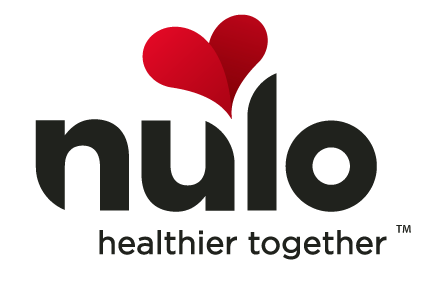
Nulo Freestyle Turkey & Chicken Recipe Grain-Free Canned Cat Food
- Affordably priced around $0.30 per ounce
- Relies on animal-sourced protein and fat
- Free from artificial additives

Ziwi Peak Venison Recipe Canned Cat Food
- Made with a single source of novel animal protein
- Venison tripe supports healthy digestion
- Whole-prey model blend of muscle meat, organs, and bone

Young Again LID Zero Mature Health Dry Cat Food
- Limited ingredient list for high digestibility
- Relies on animal-sourced protein and fat
- Very low in carbohydrates
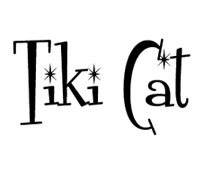
Tiki Cat Silver Chicken, Duck & Duck Liver Recipe in Broth Wet Cat Food
- Species-appropriate source of animal protein
- Soft texture and highly digestible recipe
- Rich in moisture to support your cat’s hydration
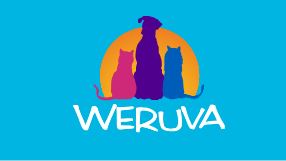
Weruva Truluxe Peking Ducken with Chicken & Duck in Gravy Wet Cat Food
- Appealing multi-protein flavor
- Good source of hydrating moisture
- Limited list of ingredients for easy digestibility
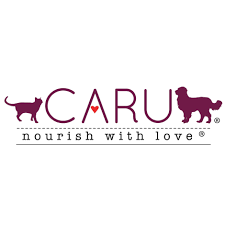
Caru Classic Turkey Stew Grain-Free Wet Cat Food
- Full of hydrating moisture with a gravy-like consistency
- Rich in animal-sourced protein
- Under 5% dry matter carbohydrate
Dietary Management of Pancreatitis in Cats
Pancreatitis is often comorbid with other inflammatory conditions, particularly inflammatory bowel disease (IBD). The exact cause of pancreatitis is unknown, so treatment typically centers on supportive care. Some cats require medication to manage acute symptoms like pain and vomiting while others might benefit from fluid therapy.
There are no prescription diets for pancreatitis and no specific strategies for dietary management. If your cat’s pancreatitis is secondary to another condition, your veterinarian might recommend nutritional therapy catered to the comorbid condition.
“While fat intake should be moderated, the type of fat matters,” Passman said. “Highly digestible sources such as fish oil—rich in omega-3s—and poultry fat are preferable, as they provide essential fatty acids without overburdening the pancreas. Avoiding excessive levels of saturated fats is key to supporting this condition. Always consult with your veterinarian to determine the most appropriate dietary plan tailored to your cat’s specific needs.”
Cats with pancreatitis might not feel like eating, putting them at a risk for hepatic lipidosis. This condition occurs when a cat doesn’t eat enough and must metabolize their own fat as energy. Without adequate protein intake, the fat isn’t properly sent into the bloodstream and gathers in the liver, disrupting healthy organ function.
Depending on the cat’s overall health and body condition, hepatic lipidosis can develop after two to 10 days of not eating.
Why Trust Cats.com
After completing hours of research and gathering input from licensed veterinarians and veterinary nutritionists, we’ve determined what qualities are most important in a diet for cats with pancreatitis.
All products on this list have been subjected to in-home testing by multiple members of our team (along with their cats, of course). The testing process is fully funded by Cats.com with no direct influence from the brands we recommend.
As part of our in-depth testing process, we analyze each product’s nutrition information and make observations about the aroma, appearance, texture, and consistency. We also perform in-depth research into the brand’s history and manufacturing processes and read reviews to gauge customer satisfaction.
Our Veterinary Advisors
- Sarah Wooten, DVM, CVJ
- Chris Vanderhoof, DVM, MPH
- Sarah Reidenbach, DVM
- Chyrle Bonk, DVM
- Jamie Whittenburg, DVM
- Albert Ahn, DVM
- Elizabeth Youens, DVM
The Top 9 Best Cat Foods for Pancreatitis
Featuring plenty of animal-derived protein and a short list of easily digestible ingredients, Smalls Fresh Ground Bird is our top pick. For cats sensitive to chicken, Smalls offers an array of single-protein recipes in multiple textures. But it might not be the ideal choice for every cat recovering from pancreatitis.
Our rankings are determined by various factors including brand reputation, price, customer satisfaction, and more—including input from our team of veterinary advisors. Your cat is unique, so follow your veterinarian’s advice when choosing cat food. To help you narrow down the options, we’ve arranged our recommendations according to food type, life stage, and other considerations.
Best Cat Food for Pancreatitis: Comparison Table
| Product Name | Smalls Ground Bird Fresh Cat Food | Open Farm Harvest Chicken Freeze-Dried Raw Cat Food | Nulo Freestyle Turkey & Chicken Recipe Grain-Free Canned Cat Food | Ziwi Peak Venison Recipe Canned Cat Food | Young Again LID Zero Mature Health Dry Cat Food | Tiki Cat Silver Chicken, Duck & Duck Liver Recipe in Broth Wet Cat Food | Weruva Truluxe Peking Ducken with Chicken & Duck in Gravy Wet Cat Food | Caru Classic Turkey Stew Grain-Free Wet Cat Food |
| Primary Protein | Chicken | Chicken | Turkey | Venison | Chicken | Chicken | Beef | Turkey |
| Guaranteed Protein | 13.00% | 47% | 11% | 10% | 54% | 12% | 10% | 9% |
| Ash | 2.35 | 1.2 | 2.87 | 1.5 | 5.26 | N/A | 0.48 | 1.58 |
| Calcium | 0.52 | 3 | 0.65 | 0.4 | 0.62 | 0.3 | N/A | 0.25 |
| Phosphorus | 0.39 | 1.8 | 0.48 | 0.33 | 0.52 | 0.14 | 0.12 | 0.24 |
| Calories Per Ounce | 40 | 149 | 35 | 36 | 127 | 31 | 19 | 30 |
| Cost Per Day | $4.00 per day | $3.75 per day | $1.94 per day | $6.96 per day | $0.75 per day | $4.98 per day | $7.28 per day | $3.67 per day |
What To Feed a Cat With Pancreatitis
Because cats with pancreatitis often experience weight loss and lack of appetite, encouraging your cat to eat is vital to their recovery. Quite simply, the best food for a cat with pancreatitis is one they will eat.
Small, frequent meals are better than big ones and supplemental probiotics and digestive enzymes (from natural sources like green tripe) may help minimize inflammation in your cat’s body. For cats who struggle to keep on weight, calorie-dense foods are essential.
Here are some tips for finding a product that works for your cat.
Focus On Highly Digestible Animal Ingredients.
Because pancreatitis impairs the production of digestive enzymes, it’s essential to keep your cat’s diet as digestible as possible. Focus on animal-sourced ingredients, especially proteins. If your cat’s pancreatitis is secondary to diabetes mellitus, it’s particularly important to limit high-glycemic plant ingredients to keep the carbohydrate content of the food low.
Cats Don’t Need a Low-Fat Diet.
If you’re familiar with pancreatitis in dogs or people, you’ll know that excessive dietary fat is a common contributor to the condition. Pancreatitis patients are usually encouraged to eat a low-fat diet. Cats are different. In cats, there’s no apparent connection between dietary fat and pancreatitis.
Try Different Flavors, Types, and Textures of Food.
If your cat has a low appetite, tempting them with a variety of foods may encourage them to eat. High-moisture foods are best to keep your cat hydrated, so try offering patés, minced or shredded foods in broth or gravy, or fresh food. You can also try adding bone broth to enhance the aroma and flavor of the food to make it more appealing.
Avoid Inflammatory Ingredients.
Since pancreatitis is fundamentally an inflammatory disease, you should avoid any ingredients that might contribute to inflammation. These include carrageenan, added sweeteners, and some artificial colors.
Frequently Asked Questions
How do you reduce pancreas inflammation in cats?
Veterinary intervention is recommended for cats experiencing an active episode of pancreatitis. Your vet may offer medications to manage acute symptoms like pain and vomiting—some cats may even require fluid therapy. Feeding your cat small, frequent meals may help during their recovery to keep their metabolism working properly.
Is tuna okay for cats with pancreatitis?
It depends on the cat. Animal proteins are more digestible than plant proteins for cats, so tuna could be a good choice. If your cat is sensitive to fish, however, tuna may cause irritation. Test a small amount to see how your cat responds.
How do you prevent a pancreatitis flare-up in cats?
There’s no sure-fire way to prevent pancreatitis in cats. In some cases, you may be able to determine the underlying cause of your specific cat’s pancreatitis and take preventive measures in the future.
For many cats, however, it’s helpful to provide a balanced diet to keep them at a healthy body weight. Avoid artificial additives and get approval from your vet before offering your cat over-the-counter medications that might increase inflammation.
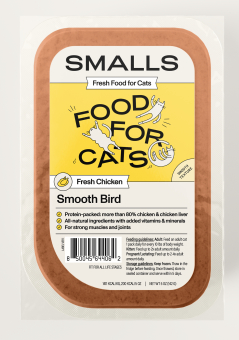
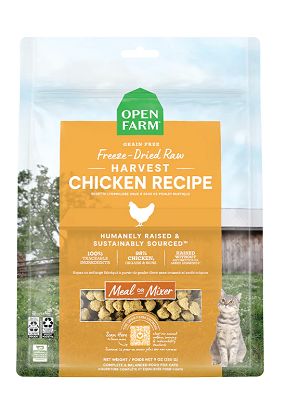

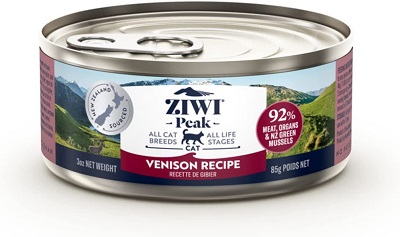

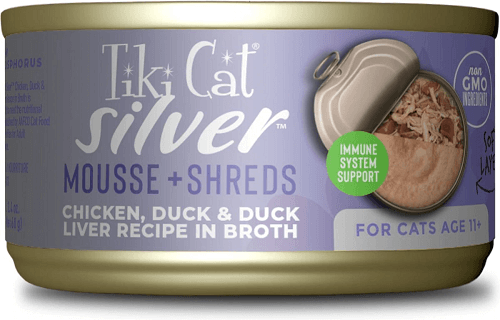


























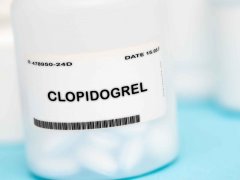

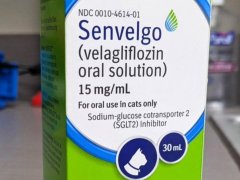

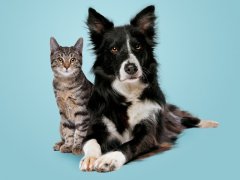
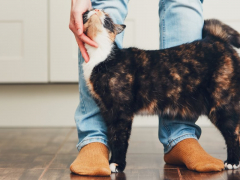
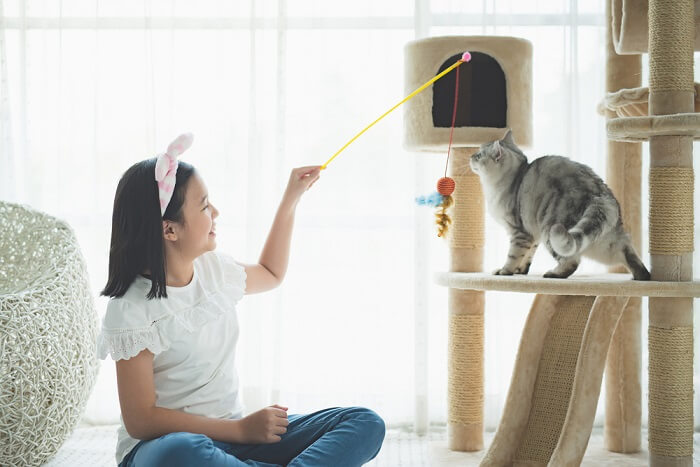

I am so confused. My cat was just diagnosed with Pancreatitis, and I am trying to figure out what I can feed her. I have 4 cats, so I have to feed her separately or go broke feeding them all special food. I went to the Smalls website to see the cost and info on their food and when I entered that my cat has Pancreatitis, they said to check with my vet before feeding her Smalls. So I called my vet, and spoke to her assistant and he laughed and said that there are companies that have a good publicist and are not approved of by FDA and that the vet would definitely not approve of Smalls. They are recommending Royal Canin or Hills Science Diet GI food. I have tried a couple of them and my cat doesn’t like them. She is barely eating and I am concerned about her.
My cat has pancreatitis for over 5 years! I give him hills prescription I/d chicken and vegetable stew canned plus in the morning Phytomaxx CBD oil mixed with it! A noon Nordic Naturals fish oil mixed in his wet food! At 6pm I give him UROMAXX again mixed in his food! NO TREATS or HUMAN FOOD!!
Thank you so much for the additional information! Very much appreciated. Thank you! We’re trying our kitty on the Rustic Turkey, hoping he gets better! Mixing it 1:1 right now with his old food, making the transition.
Great information! But the products featured don’t seem to include the OpenFarm product, which was listed as the best. Do you have an analysis of it? Thanks!
Hello Ken, that’s a great question. We actually have analyzed Open Farm as a solution for pancreatitis and consider it to be an acceptable option, but we replaced it with Smalls as a more species-appropriate, lower-carb option. Here’s what our cat food reviewer, Kate, says about Open Farm for cats with pancreatitis: If your cat suffers from pancreatitis, he needs a high-quality, easily digestible diet that focuses on animal-based protein and avoids inflammatory ingredients. This Open Farm turkey flavor wet food is a great choice for cats with pancreatitis.
This wet food features humanely raised turkey as the primary ingredient and single source of animal-based protein. Turkey bone broth provides moisture and natural turkey flavor, making this recipe both palatable and easy for your cat to digest.
While this formula does contain several plant-based ingredients, it is free from inflammatory additives like carrageenan and artificial colors or flavors. The total carbohydrate content is only slightly above our recommended 10% maximum and there are no fillers or animal by-products.
Hope this helps!
I landed on this post and thread looking for info about HUMAN pancreatitis, but this has proved to be surprisingly helpful. My son was recently diagnosed (https://www.premiermedicalhv.com/divisions/services/pancreatitis/) and I feel like I know way more about recommended diets than I did before reading this. I know that wasn’t your intent, but thank you!
I felt the same when writing this article—there’s a lot to learn about the condition, and naturally, there is an overlap between the issue in cats and humans. Glad you found it helpful, and I wish you and your son all the best.
I’ve been reading all of your followers’ questions and comments, and these are my observations based on my research and experience with my cats:
1). Mars Inc. owns several of those pet food brands that are creating health issues in our pets. For example, Royal Canin, greenies, temptations, whiskas, Iams and more.
2). Hills is the other culprit and what’s worse, vets push their “prescription food” and it will only make your pets sicker! Their brands include science diet and healthy advantage.
Both of these companies add wheat gluten and many other unhealthy ingredients. If your pet is unhealthy, check to see if you’re feeding them one of their products and stop immediately! Do your research and buy food with the appropriate animal protein, less all of the other garbage. Even blue Buffalo products will bring on bouts of vomiting and diarrhea.
3). Purina products are also crap though both of my cats love their food. Stay away from all of their canned products for sure…haven’t researched their other products. The more expensive green labelled ones are like feeding your cats candy.
4). High fat content does seem to bring on pancreatitis but the wheat gluten and grains are probably the big culprits. One of my cats ate a lot of salmon feast (high fat content even though it’s a good one), and the other didn’t but they both developed pancreatitis at the same time. One was eating fancy feast and the other friskies (indoor food) in addition to having access to good quality high protein dry food (Origen). My calico (the fancy feast eater) has been vomiting at least 3x per week for the past few years and never once has our vet said anything about changing her food other than prescribing hills prescription food, which never helped anyway. He put her on hills’ “recovery “ canned food this past time and her diarrhea got so bad we were considering putting her down…it was pouring out of her. My ginger tabby likes only the friskies but as soon as he starts sneezing I know to cut back on his wet food. Wheat gluten is a listed ingredient on friskies indoor, but not on the fancy feast cans.
Neither cat likes the same food. I’ve been trying dozens of different cans of cat food and tracking what they will eat and I only have 2 or 3 options so far. Once they’ve had too much of one food, they get sick of it and won’t touch it again. I don’t know how many of the products mentioned on this website are available in Canada but I’m going to start checking.
I just recently started feeding both of them blue Buffalo senior dry cat food as it was supposed to be easier for my calico to chew (she’s 14 and recently had 4 teeth removed) and the bloody diarrhea has started all over again. Back to square one….
My next route is to make their food myself. I’ve purchased a vet’s book (Dr. Gary Richter) called The Ultimate Pet Health Guide and I plan on starting in another week or so. I’ve purchased all of the supplements already (and there’s quite a few). I’m also going to make a bone broth to give them that added moisture in the food. I’ve learned how to do that part from your website (just bones, meat and water, no seasonings). I make bone broth for my husband and I all of the time but I didn’t know what to omit from theirs, other than onions (toxic to cats).
Thanks for a very informative website! I hope my experiences might help someone else.
This blog implied you are wrong due to the high fat content of all your recommendations:
https://naturalpetshq.com/cat-food-for-pancreatitis/
My cat was just diagnosed with diabetes. I truly believe the diabetes stems from issues with his pancreas not functioning properly as he had a severe bout of pancreatitis 2 years ago and almost died. But I feel like I’m just treating a symptom, albeit a dangerous symptom that certainly needs treatment. He is a finicky eater and is very underweight. I found out he likes hamburger meat when I was making hamburgers a week ago and gave him a little taste. He went crazy and was climbing up my leg for more. Is it safe to feed him hamburger meat? He does like canned chicken breast. Is that a good option? I will also try out the foods recommended in this article.
Thank you so much for your input. This article is very helpful.
Hi Carolyn, is the hamburger meat raw or cooked? Raw ground meat is more likely to be contaminated with pathogens that may harm your cat. As long as it’s cooked, I believe that the meat should be an acceptable treat, but I would recommend consulting with your veterinarian before deciding whether or not you want to continue giving your cat this food. All the best! – Mallory
Thank you for the helpful information and recommendations. My cat is recently diagnosed with Pancreatitis at levels starting at 16 and now down to 14. She is completely healthy otherwise and still eating good but the vet is having me start with changing her diet. Your article was very informative. Are there any other new foods your would recommend?
Hi Amy, thank you for commenting! We don’t have any updated recommendations at this time, but in general, a straightforward, meat-based diet that is highly-digestible is going to be your best bet. In addition to the recommendations here, you might appreciate some of the options listed in our article on the best cat food for IBD, which seems to respond well to a similar type of food: https://cats.com/ibd-in-cats
Of course, this is not veterinary advice and I’d encourage you to consult your veterinarian before you make a final decision.
Hope this helps!
Thank you from the bottom of my heart!!❤
Hello Mallory! This was a terrific article with perfect timing. My 11 yo, Sugarbee, was diagnosed a few days ago with pancreatitis and inflammatory bowel. My question; can you recommend a venison wet food recipe that I can make my self, or, send me to a site you approve of? Also, are scrambled or raw eggs ok? I live in upstate NY and our whitetail deer population is huge, i think venison would be the easiest and least expensive option. I’m also pretty darn handy in the kitchen lol! Thank you!?
Hi Lisa, thanks for commenting! Unfortunately, I don’t have a good venison recipe for you, but the team at IBDKitties may have some advice for you. As for scrambled and raw eggs, both are okay! We have an article on the safety of eggs for cats here. Sorry I couldn’t be of more help, but I hope this points you in a productive direction.
Hi Mallory!!! This is the first time I’ve had the pleasure of checking out your site. I can’t say enough how thankful I am for the information I’ve found in the last hour. My 11 yr old cat Tabby was diagnosed with pancreatitis three years ago. I saw your post on the top 5 best food for pancreatitis but unfortunately Tabby will not eat wet food of any kind. She is extremely picky and won’t touch anything wet, not even wet treats like the freeze dried chicken from Purebites. I’m wondering if there are any dry food brands you have come across that will help reduce flare ups. The vet has recommended a science diet dry food but I’m hoping better food exists. Thank you so much for your time 🙂
Hello there! Thank you for stopping by. I’m delighted to hear that you’ve found our site helpful. As for the best cat food for your kitty with pancreatitis, I’d generally recommend something that follows the same nutritional rules seen in the foods recommended here. Look for something nutrient-dense and highly-digestible. Many of the options on our list of the best dry cat food may be promising options. Again, this is not veterinary advice, but digestibility seems to be the most important factor when choosing good food for a cat with pancreatitis. Hope this helps! – Mallory
Can I just suggest that cats who are picky eaters or anorexic can be fed via a 10ml syringe as long as you get a cat food which can be watered down to a syringeable consistency. I use Hills restorative ad which can be fed like this and so far, it seems OK. My cat will eat it “neat” if the tin is freshly opened but the rest of the tin contents need to be fed about 20-30ml at a mealtime by syringe. Downside is it’s not especially cheap but petdrugsonline sell it cheaper than your vet will. Good luck to all struggling to keep weight on your kitty!
You mentioned that sweeteners can cause pancreatitis flare ups My cat was getting something that had fructose in it everyday for a long time A supplement that I had no idea could harm him.Sounds like this wouldve.He had extremely high pancreatitic enzyme level The highest the vet rech had seen she said.I had him reluctantly euthanized on ironically Mothers Day.I miss him terribly I did everything that I could to keep him healthy and now I think the fructose was essentially poisoning him unfortunately Thankyou for your response re this sweetener.Lynn C.
Hi Mallory,
Thank you for this Very helpful Information! I’ve been dealing with chronic pancreatitis in my cat Sox for the past two years. His blood work also indicated IBS. He’s a rescue (About 2.5 yrs ago) so I’m not sure of his age or much of his history. My vet recommended science diet wd and id both dry and wet. Over the past couple months his flare ups have been a bit more frequent. He’s on prednisone (for the past 2 years) and any time I’ve tried to taper down he gets worse. I also give him cerrinea (sp?) for nausea and any pain but pain is not always obvious. I sometimes give him Chicken proplan along with Royal canin sensitive stomach (but not the prescription because he didn’t like it at all). It seems like chicken is less upsetting to his stomach and I’ve tried to keep the fat content low and it’s interesting that this may not be that important. I’m wondering if the food needs to be changed – I’m not wild about the science diet and neither is he. What are your thoughts on Fromm food? My vet just retired and I’m wondering if it’s good time to find a cat specific vet. I have IBS myself and a probiotic has helped me alot so I’ll definitely try that along with enzymes to help him. He’s the sweetest cat I’ve ever had and I’ve had cats my whole life. I really want to give him the best Quality of life i can and don’t mind the cost of food if it helps him. Only one of your recommendations included chicken but I’ll try the kiwi also. What are your thoughts on the medication? Would the probiotics and enzymes keep the inflammation and flare ups to a minimum? I realize you’re not a vet but appreciate any recommendations or advice. Thanks! Holly
Hi Mallory
Do you have any advice for cats with pancreatitis and renal disease. My fur buddy has stage 2 renal disease and is on hills dry renal biscuits. Most recent bout of pancreatitis has left him with poor appetite. I was advised to give him a low fat diet which is almost impossible on renal diet which is low in protein but still has relatively high fat content. He won’t eat wet food aside from a small amount of tinned tuna and crab which I’m giving currently just to get him to eat something. Worrying times. Would be really grateful for any advice. We reside in the UK.
Thank you
Hi Claire, that’s a good question. I’m not a veterinarian, but from what I’ve seen, a low-fat diet necessary is not particularly beneficial for cats with pancreatitis. Therefore, I think that treating your cat’s renal disease while encouraging him to eat should take priority over the pancreatitis. I know these are worrying times and that you have a lot to think about, but I would concentrate first on finding foods that your cat is willing to eat, regardless of how well they fit into a typical pancreatitis-friendly diet. If those diets address your cat’s renal disease, good—but ultimately, just getting in some calories is the top priority. Again, I’m not a vet and it would probably be best to bring these questions to a veterinarian, but I hope this helps to point you in the right direction.
Best,
Mallory
Our cat, Earl, has pancreatitis and IBS. He’s not a picky eater and currently eats dry food from both Science Diet and Royal Canin for sensitive stomach along with Royal Canin wet food for sensitive stomachs. But he sometimes seems hungry and begs for treats. We’ve been giving Temptations, which our vet said to limit due to fat content. Do you have suggestions for cat treats that would be healthy for him?
Hi Cynthia,
You can check out our article on:
https://cats.com/best-cat-treats
It should help point you in the right direction.
Purrs,
Pedro
My cat was diagnosed in Jan. with pancreatitis and currently trying to get her weight back up to 9.5 lbs. I am feeding her about 4 cans of Iams purrfect delacacies a day. I feed her every 2 hours due to she is still on the steriod until my vet gets back from maternity leave and I have her stable. My dilemma is that Iams is discontinuing her food and I need to find a quality food for her so I can transition her slowly, the thing is she can’t have poultry. I am in dire need of suggestions
Hi there, Brenda.
I’m assuming you’ve been feeding her a fish-based variety of Iams Purrfect Delicacies, so you might want to start with fish-based foods. No, they’re not ideal in the long-term, but your cat has to eat and now is not a good time for a hunger strike.
Tiki Cat has plenty of good fish-based recipes. Tiki Cat tends to be a bit light on fat and calories, so you might want to add in some high-calorie treats or perhaps supplement her diet with beef or pork baby food to keep her weight going in the right direction. If Tiki Cat is out of your price range or not your cat’s style, you might try Fancy Feast Flaked food instead. Fancy Feast isn’t perfect, but it’s far from the worst and has some good qualities, including low carbohydrate content, no carrageenan, no added colors, and high protein content.
You could also try any of the non-poultry recipes listed in this article.
Hope this helps!
Take care,
Mallory
Thank you very much! I’m on it!!
Curtis
Hi Curtis,
Thanks for reaching out! I agree with your observation on the fact that Lola goes after people food and therefore should be open to eating wet cat food.
All of the foods listed in this article are good long-term options for a cat with pancreatitis. Most of the products listed come in other flavors that are equally solid choices, so you might want to explore those while using Lola’s people food preferences as a guide. For example, my cat Wessie goes mad over turkey when we have it for Thanksgiving and is an (almost) equally big fan of turkey-based cat food. Also, if she’s resistant to the new food at first, you might try enticing her to it with chunks of cooked turkey, chicken or any other food/treat she loves.
As for the digestive enzymes, the product I see recommended most often is Dr. Goodpet’s Feline Digestive Enzymes. It’s a tasteless powder that contains protease, amylase, lipase, and cellulase along with the probiotic Lactobacillus acidophilus. You’ll sprinkle half a teaspoon onto each cup of food.
If you want to learn more, here’s a link to Dr. Goodpet’s Feline Digestive Enzymes: http://www.goodpet.com/dogs/digestive-support/feline-digestive-enzymes-4-oz/
Hope this helps!
Best,
Mallory
Ms. Mallory,
My girlfriend’s cat has pancreatitis, and vomits at least once a week. She has tried feeding her wet food before, (not sure what kind), and says that she doesn’t seem to like it or eat it. She is currently feeding her Hills prescription diet, but like I said, Lola is still puking on a regular basis. I personally believe that if we offer her a wet food that she likes the taste of, she would eat it. I say that because when we eat in front of her, she often times tries to come eat what we are eating. Do you have any recommendations for a type of wet food or any type of food really that would be a good long term solution for a cat with pancreatitis? Also, from what I’ve read, it sounds like we should be supplementing her food with digestive enzymes. Do you have any recommendations for what type and methods of going about that? Any information would be greatly appreciated!
Thanks in advance,
Curtis
Concerned, I have two cats, one who had a serious episode of pancreatitis two years ago, after a seven day stay at the vets, he came home with Royal Canin gastro low fat food, which he eats with no problem, and hasn’t had another episode. Having two cats, it was difficult to stop either eating the others food, so both ate Royal Canin dried food, as does my dog (retriever, Irish setter) in the last 10 days my dog has had a serious episode of ‘old dog disease’ a neurological disorder (nervous system), that has similar effects to a stroke, rapid eye movement and loss of co-ordonation, he is making a good recovery, my cat (not the pancreatitis) has had a routine check up and dental procedure, which uncovered an ulcer on his tongue, and foot pad dermattisis, I have noticed over the last week, he has been pushing his head into my hand and just resting there, after looking for suitable foot treatments that may help him, I came upon a web site, that suggests this head pressing is related to a neurological disorder (nervous system) with out intending to cause any alarm to any readers, I am wondering why both cat and dog would both be inflicted with nervous system issues! Could their diet be a cause?
Alyson,
Sorry about the late response!
I can see why you’d be concerned after having your dog and now your cat exhibit what may be symptoms of neurological issues. It could be a coincidence and your cat might be fine, but if this were happening to my pets, I would want to withdraw the Royal Canin food until I had more answers.
If you haven’t gone already, it sounds like it’s time for another vet visit. When you go, be sure to note any other symptoms, your cat’s diet, and anything else that’s changed recently. A few things to think about or mention to your veterinarian—do you think this behavior might have any connection to his recent dental procedure? Is he pressing his forehead and crown against your hand or is he pressing another part of his head? Is he also pressing it against walls or other firm surfaces? Is he exhibiting any other symptoms of neurological issues?
Thank you for sharing what you’ve been going through and I hope your pets are feeling better now.
Best,
Mallory
Mallory, This is the first time I’ve had the pleasure of benefiting from your site. Thank you so much for sharing the kind of information I really was searching for! I have an older calico with IBS, pancreatitis, minus eight teeth and whoever had her before, declawed all four of her feet. Despite it all, she’s an amazing girl! She likes a lot of gravy on her wet food. I’m having a difficult time finding a food to suit her and her pancreas. We have tried #5 on the list without success. Could you possibly say which of the other four would be the best place to start? Especially since it will mean ordering a case from Chewy. I really want her to feel better. I, too, am disabled. She’s incredibly important, and much loved! Thank you! ~Kelly
Hi Kelly,
So glad you found the article helpful!
Since she loves lots of gravy on her wet food, your cat might like the Lotus Just Juicy food on this list. If Lotus doesn’t work out, Weruva is another option. They’re not mentioned on the list, but all Weruva foods are packed with gravy and a hit with most cats. Most of them are very simple and shouldn’t worsen inflammation. Regardless of which food you choose, you might want to add probiotics or digestive enzymes and an omega-3 supplement just to make sure your cat’s not missing out on any anti-inflammatory or digestive benefits.
I also wanted to mention that Chewy has an extremely friendly return policy. If your cat doesn’t like the food, Chewy will almost certainly give you your money back or allow you to return what’s left in the box.
Hope your calico kitty feels better soon! She sounds like a gem.
Best,
Mallory
Thank you for the artical. I been reading on pancreatitis last 1h, my cat tiggy has been at the vet since Saturday. I read on another artical that probiotics can lead to death cuz of a study in humans … that scared me what do u think? I give my cats nova probiotics when I’m able to buy it off Amazon it’s for cats dogs. I’m in Canada and I have 8 rescue cats. I was doing dry food with water and canned Food. Dry food I have changed it a few times my cats don’t like much of it , I was giving them a brand called merriet (I can’t spell the name of it) mixed with urinary food (4of my cats have royal urinary food that I WISH they were off it and on better food Ingredients are terrible ) maybe the royal triggered pancreatitis on my cat tiggy I would only add half or less to his meal twice a day. I then switched them this week to open farm salmon food cuz ingredients seem better but j still add wet food and water mixed into it I was slowly switching them.. My cats eat the weruva wet food I was looking for a enzyme on amazon.ca for him would all my cat needed it is it best for all my pets to take enzyme? My cat tiggy also had fluid in his lungs my vet’s done 2xrays his lungs look better today but still has a small bit he does xrays tomorrow and hopefully when I go in to pick up tiggy he’s better wil pass by vet before 7pm. I think he got lung problems from kitty litter tiggy loves being in the litter box room and dust from litter isn’t good. I want to change there litter mid month what dust free littef do u RECCOMAND that’s not overly expensive. . And about food I keep hearing feed raw but I’m not sure how to make raw cat food and supplements even if I Google it seems do complicated. Re a giving a antioxidant like spirulina good for cats dogs. Every extra supplement in Canada seems extra $40+.. I hope I can keep tiggy from never going thru this pancreatitis problems again. I’m assuming My vet well RECCOMAND the wet food from royal for his pancreatitis for now. Tiggg brother corvette passed away in September of pancreatitis it was to late I did blood work on a friday but vet didn’t recommend pancreatitis test then sat he was still sick then we did pancreatitis test Sat didn’t get reeults to Monday a.m and it was to late cuz my sweet boy corvette passed away sun night as I slept it was heart breaking. Do all cat that have pancreatitis get flar ups ? I hope my tiggy doesn’t get it. Thank you for the advice. Gnig it’s very late here in Canada .
Hi Sara,
There’s a lot to respond to here—I’ll try to touch on all of your main points. Unfortunately, I won’t be able to give you many absolute answers. Pancreatitis is still not very well-understood and there aren’t a lot of tried-and-true solutions. I’m also not a veterinarian, so none of the following ideas are a replacement for veterinary advice.
First off, we don’t know exactly what causes pancreatitis in cats. It’s almost impossible to say whether or not Tiggy’s diet contributed to his condition. That said, many cats eat Royal Canin’s urinary health foods without any negative effects, so I’m going to venture that it wasn’t a factor. In addition to the products on this list, any simple, meat-based food should be a good option once he’s feeling better.
You’re right that one study suggested that people taking probiotics had higher mortality rates than those taking a placebo. It’s unclear what caused this effect or if it translates to feline patients. I wouldn’t be too worried about this, though. Especially for your other cats who don’t have pancreatitis, probiotics can do a lot more good than harm.
As for enzyme supplements, that’s another big question mark. In theory, enzyme supplements should be a good addition to any cat’s diet, but any benefits are hypothetical at this point. Consider using Dr. Mercola’s digestive enzyme supplement, Only Natural Pet’s probiotic and enzyme blend, or the Digest-All supplement from Wholistic Pet Organics.
There are plenty of dust-free litter products on the market, but I’m not sure that the fluid in Tiggy’s lungs is related to the amount of time he spends in the litter box room. Fluid in the lungs is sometimes associated with pancreatitis and is not a typical symptom of inhaling too much litter dust.
If you’d like to try a less-dusty litter just in case, here’s our guide to the best dust-free litter you can buy:
https://cats.com/best-dust-free-cat-litter
Finally, not every cat suffers from pancreatitis flare-ups. Some cats have a single bout of acute pancreatitis and never have a problem again. Tiggy may well be one of them.
I know that pancreatitis is frustrating and scary. It must be especially scary given your experience last September. But it sounds like you’re doing the best you can for Tiggy—rest, veterinary care, and time will have to do the rest.
Hope this answered your questions.
Take care,
Mallory
Hello Dawn!
Thanks for your comment.
I’ve done a little research on brands available in Australia and spotted a few that stand out as potentially good options for your two kitties.
One is Raw Meow, which offers a freeze-dried raw food made from species-appropriate, ultra-digestible, non-inflammatory ingredients. Their recipes include green-lipped mussels, which may help to maintain your senior cats’ joint health. Quite similar to Raw Meow is Feline Natural, which also offers freeze-dried cat food made primarily from ultra-digestible, non-inflammatory ingredients. Like Raw Meow, their recipes include green-lipped mussels.
Wellness CORE grain-free canned food is another option, though they do contain a tiny bit more plant matter than the other brands above. It doesn’t sound like your cats have any dental issues, but if they do, they may appreciate Wellness CORE’s line of smooth pates, which have an easy-to-eat texture that’s well-received among cats who are moving past middle age and have the bad teeth to prove it.
I hope this helps you and your cats!
Best,
Mallory
Hi,
My poor little georgie boy just got his first bout of pancreatitis and it was pretty awful, we almost lost him 🙁 so I`ve been looking for the best foods to give him and his sister (they share food and are 13yrs old) as they move past middle age.
We live in australia so unfortunately some of the foods listed in your fabulous and helpful blog are not available here (bummer)….Our vet has recommended the Hills ID Digestive care biscuits and chicken stew wet food, but am totally up for any ideas if you have heard of or know of anyone that has a good suggestion?
Thank you,
Dawn
My cat has pancreatitis! Every 3 months he’s at the veterinary hospital and I’m spending $1,500 every time! Almost 2 yrs ago a new veterinarian put him on hills prescription I/d digestive care chicken and vegetable stew canned! He never went to the he hospital again!